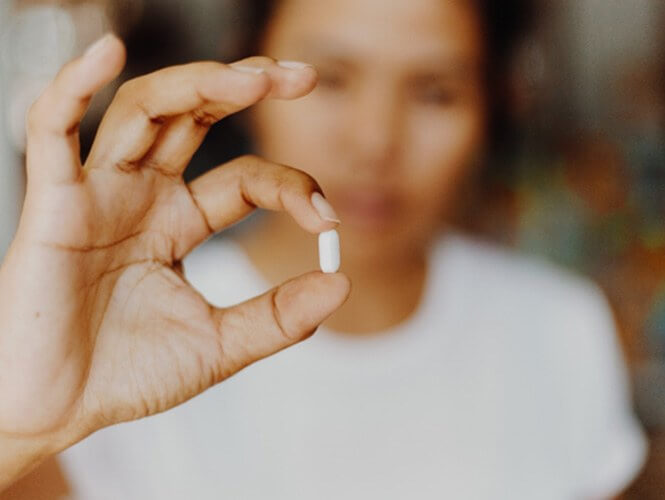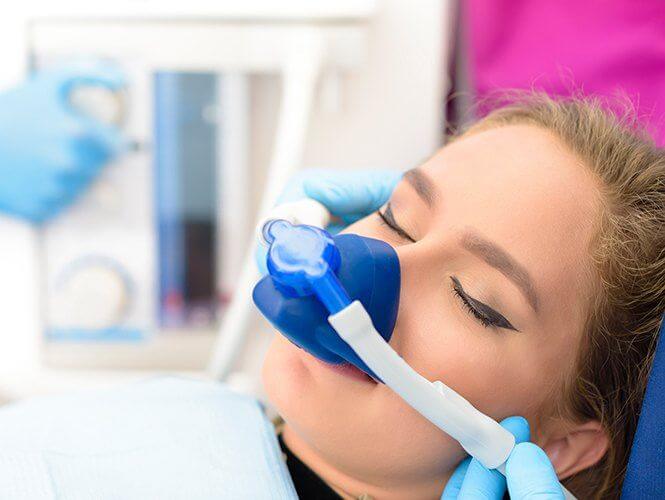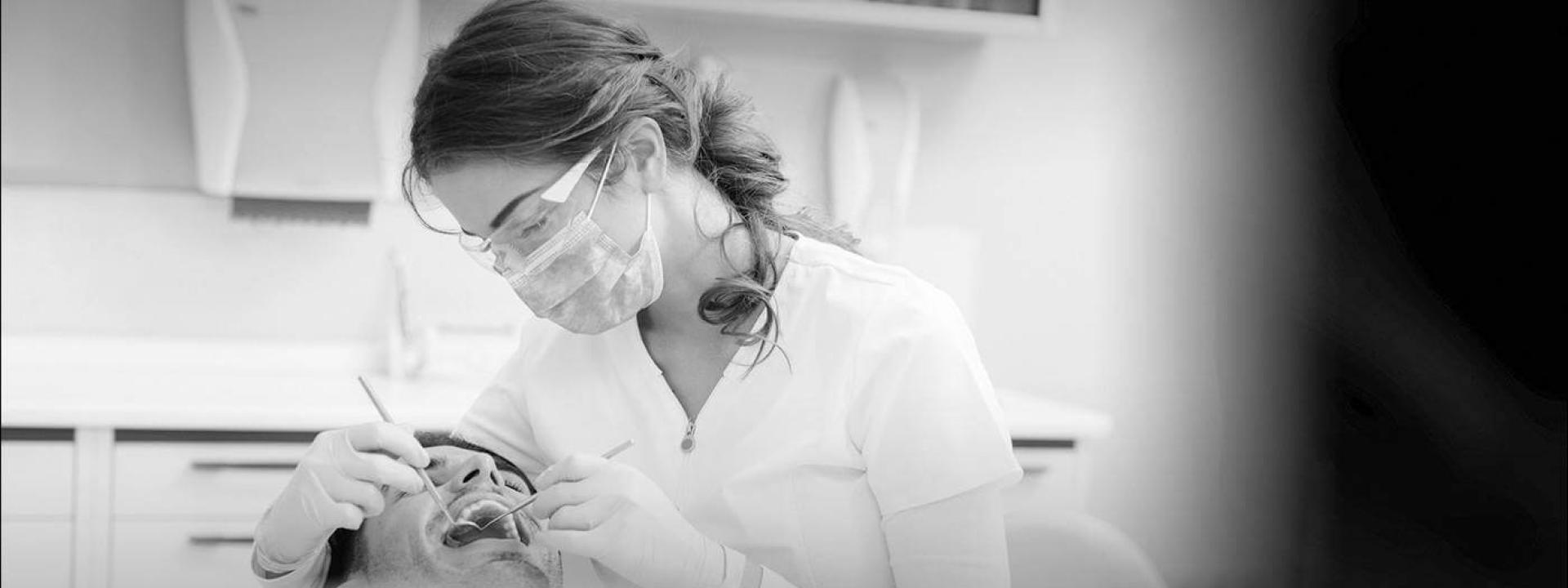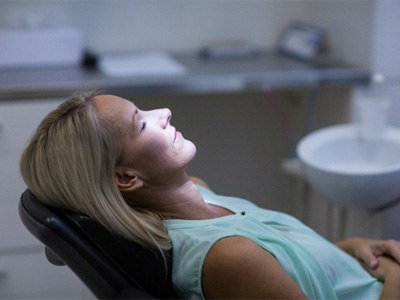Hi, I'm Dr. Matt Rasmussen with Periodontics and Implant Dentistry of Tallahassee. We've been getting more questions about sedation dentistry, so I want to spend some time today going through some of the most common questions that we get regarding sedation dentistry.
Why would sedation be needed in dentistry and how does it help patients?
Sedation is used for a couple of different reasons in dentistry. Many patients are very fearful of the dentist or have had poor experiences in the past, so sedation dentistry is an option where the patient may not remember the prior treatment or is not going to be fully aware of the treatment as it's going on. Also, many patients have very significant needs, so the appointments may be longer. Sedation dentistry is very helpful with patients who may be in the chair for more than an hour or two.
What types of sedation are commonly used in dentistry?
There are a number of types of sedation options that are available in dentistry. We'll go through the main ones that we use in our office, but I'll also hit some of the ones that are in more controlled settings. When people think of sedation, sometimes they think of going into the hospital under general anesthesia, which is not very common in dentistry. The most significant type of sedation is typically with oral surgeons for things like wisdom teeth, known as IV sedation. In our office, we offer two different types of sedation that are slightly lighter than the deeper type of sedation. We offer nitrous oxide, which is a gas that allows someone to feel often described as a little bit floaty or loose at the time of the appointment but is not a deep type of sedation. We also offer oral sedation, where a patient takes a pill the night before, one the morning of, and takes a few pills afterward. The patient typically will have a driver with them because they may or may not remember much of the appointment after the procedure, and typically patients are going to be more sedated with oral sedation.
Who is a good candidate for sedation dentistry?
Many patients are good candidates for sedation dentistry. You want to talk with your doctor at the time of the exam to see if there are any medical contraindications that would make you not a candidate for sedation, but the majority of people that come to our practice are good candidates for sedation dentistry if it's something they would like to pursue.
What is the difference between sedation dentistry and general anesthesia?
A common question we get is what is the difference between general anesthesia and sedation dentistry. When someone is being sedated in a typical dental office, they are technically awake at the time of the procedure. So if we ask them to turn their head to the left, turn their head to the right, or ask them a question, they typically will be able to answer. Now, sometimes a patient will fall asleep during the procedure, but that's not always the case. This is different from something like general anesthesia, where a patient is under such a level of sedation that they have to have an airway and all sorts of things put in place, which is a much more involved medical procedure.
What is nitrous oxide and why do some dentists still use it?
Nitrous oxide is a gas that can be used at the time of a procedure that allows the patient to feel slightly euphoric or have a good feeling during the procedure. It's an excellent option for lots of patients who don't want to be fully sedated but may want something to help them relax a little bit more during their dental appointments. It's very common to use because it's very safe, very easy to use, and relatively low cost.
How does oral sedation work in dentistry?
Oral sedation is a type of sedation where pills are taken by mouth. The pills are meant to have the patient slightly relaxed, and oftentimes the patient may not remember the procedure afterward. In our office, we typically use a medication called Halcion, otherwise known as triazolam. Patients typically will take one pill the night before the procedure, come into the office, take one pill one hour prior to the procedure time, and then we'll titrate to effect with one or two additional pills in the office. Most patients on this medication will typically not remember the appointment after the day of the appointment.
What are the benefits of sedation dentistry for anxious or fearful patients?
There are a number of benefits of sedation dentistry for those patients who are anxious or fearful of the dentist. For most people, they will be less aware of the procedure at the time when they're sedated, therefore they can sit in a chair more comfortably. Another strong benefit of sedation dentistry is that there's something known as anterograde amnesia, meaning after they start taking the medication, they're not going to remember most of the procedure afterward. So even if they are technically awake, they will not have a bad experience after the fact because they'll just have the procedure done and move on with their lives.
Is sedation dentistry safe for everyone?
Sedation dentistry is something that is very safe for the vast majority of patients. There are certain medical conditions that would contraindicate or make it not a good option for particular patients. It's important that you have a discussion with your doctor at the time of the exam to see if any medical contraindications would be present that would make it where you're not a good candidate for sedation dentistry.
What can I expect during a dental procedure with sedation?
With a dental procedure with sedation, there are a number of things to expect ahead of time. First, remember that before the procedure, we're going to have full consent forms, and you'll have a driver with you. You will not have anything to eat or drink other than clear liquids for six hours prior to the appointment. For this reason, if someone is sedated, we typically try to do those appointments relatively early in the morning. On the day of the procedure, the main things to expect would be that you'll come into the office early for the appointment, we'll give the medication, and titrate it to effect prior to the procedure. You may feel a little bit drowsy or loopy, as some people would say. Then the procedure will go as planned, and you would head on home afterward. Many patients will not necessarily remember the procedure after the fact, and that's okay. Remember, we've got a driver with you to answer any questions or do any additional forms or anything like that while you're in the chair.
How does laughing gas or nitrous oxide make patients feel at the dentist?
Nitrous oxide, with a common name known as laughing gas, is a gas that's administered through a nasal cannula at the time of a dental procedure. Most patients report they feel a slight loopy or happy feeling in the chair. Now, some patients do laugh; it's not all that common for patients to laugh in the chair, but most patients just feel slightly more relaxed than they would otherwise, making dental appointments easier for those patients who are slightly anxious in the dental office.
How long does it take for sedation to wear off after a dental procedure?
The medications used in oral sedation take some time to wear off. For this reason, after your appointment in the office, we'll often have the patient stay in the office while on monitors for a period of time to make sure that they're beginning to recover from the sedative effects. However, there is some medicine still in the system after that appointment. For this reason, we recommend not taking any other medications that have a sedative effect for 24 hours. This can include strong pain medications like Percocet or other sleeping aids, as there may be slight amounts of the sedation medications still in the system.
Can I request sedation for my dental appointment or procedure?
Many patients have concerns regarding the experience in the chair with more involved procedures. If this is something that you think would be helpful, please feel free to ask questions at the time of the exam to discuss options regarding oral sedation or nitrous oxide.
Can sedation be used for all dental procedures, including cleanings and implants?
A common question that comes up in our office is what types of procedures can be performed while a patient is being sedated. There are multiple types of sedation. Two options that we typically use in the office are oral sedation, which is more involved, and nitrous oxide, which is less involved and more straightforward. Typically, for more involved procedures like dental implants, if a patient wants something like oral sedation, they're more than welcome to have it. For something that's less involved, such as a dental cleaning, we'll typically urge the patient to consider something like laughing gas, as there is less time involved, less cost involved, and it's a more straightforward process. Since we can make most patients comfortable for regular dental cleanings in the chair either just with regular numbing or possibly laughing gas, we typically do not do oral sedation for cleaning visits.
How do I prepare for a dental appointment with sedation?
A common question that comes up is what precautions or things we need to take into consideration prior to a sedation visit at the dental office. In our office, we have a pre-operative appointment where we're going to go through in writing and verbally all the instructions of what to expect before, during, and after the appointment. At that point, we'll go through all the specifics on what clothes to wear, what to eat or drink prior to the procedure, who needs to be with you, and things along those lines.
What should I do if I have concerns about the safety of sedation dentistry?
Some patients have concerns regarding the safety of sedation dentistry. The first point to keep in mind is that sedation dentistry is at the request of the patient if they feel that anxiety or fear is going to be a concern at the appointment. There are no procedures that we do in the office where sedation is fully required. If a patient is concerned about any kind of safety issues with sedation, I would strongly urge them to talk with their physician as well as their dental professional to check for any medical contraindications that may indicate that sedation dentistry may not be needed. I would also urge those patients, if they feel like they can proceed without sedation, to consider something less invasive, possibly only nitrous oxide as opposed to oral sedation, or consider going through the procedures without sedation.
I hope I've been able to answer some of your questions regarding oral sedation. If you have any additional or more specific questions regarding oral sedation, please give us a call at area code (850) 692-9200.
What is sedation dentistry?
Sedation dentistry involves the use of medication, either inhaled, taken orally, or administered via IV, that helps reduce anxiety during a dental procedure. The level of sedation can vary depending on the procedure.
Why is sedation dentistry effective at treating anxiety about dental procedures?
Anxiety about dental procedures is a common concern among patients. Sedation dentistry, especially oral sedation, not only helps reduce this anxiety, but also often results in the patient not remembering the procedure afterward. This makes their experience in the dental chair much more enjoyable.
Is oral sedation safer than general anesthesia?
Oral sedation and general anesthesia serve different purposes. General anesthesia is used for more invasive procedures and is done in a controlled environment. Oral sedation, on the other hand, is used to reduce anxiety during the procedure while the patient is still in the dental chair.
What are the types of dental sedation?
Dental sedation varies from light sedation with nitrous oxide (laughing gas) to oral sedation, and more intense forms of sedation done via IV or in a hospital setting. The latter is typically done by an oral surgeon.
What do oral surgeons use for sedation?
Oral surgeons often use more potent medications, usually administered via IV, either in their office or in a hospital setting for major reconstructive procedures.
What can I expect during oral sedation?
Oral sedation helps to calm you down during your dental visit. While some patients might fall asleep, the main goal is to ensure you're relaxed and comfortable throughout the procedure.
Do you need sedation for tooth extraction?
Sedation is not a necessary component for any procedure. However, if a patient prefers sedation and is medically cleared for it, we can certainly offer it to ensure a positive experience.
Are you awake under sedation?
With the types of sedation we offer, patients are typically awake for the procedure. Some may doze off during part or all of the procedure, but the goal is to ensure the patient is relaxed and calm throughout.
Is sedation dentistry painless?
Although we can’t guarantee a total elimination of pain during dental procedures, we take measures to ensure the patient is as comfortable as possible. Oral sedation often aids in the numbing process during the procedure and can enhance the overall experience.
What are the possible side effects of sedation dentistry?
Like any medication, there's a possibility of feeling nauseous after a dental procedure with oral sedation.
How can I request sedation during my next dental procedure?
If you have any more questions about sedation dentistry or if you wish to request it for your next procedure, please call us at (850) 692-9200. We look forward to seeing you at your upcoming visit and discussing further specifics then.
Guaranteed Comfort While in the Chair
At our dental office, whether we’re treating gum disease or replacing missing teeth, we often use local anesthetic to ensure our patients don’t feel the slightest hint of physical discomfort at any point of their treatment. For our more nervous patients, sedation dentistry can help with the other side of the coin—dental-related anxiety. The techniques outlined below can help calm racing minds and enable a patient to feel completely comfortable while in the chair so they can get what they need without experiencing unnecessary stress. To learn how we could use sedation dentistry in Tallahassee, FL while taking care of your smile, contact us today.
Why Choose Periodontics & Implant Dentistry of Tallahassee for Sedation Dentistry?
- Able to Calm Any Level of Dental Anxiety
- On-Site Sedation Available
- We Take Our Patients’ Concerns Seriously

Oral Conscious Sedation
For many patients, oral conscious sedation sounds too good to be true. You’re simply prescribed a pill to take at home the day of your appointment, so by the time you actually reach our dental office and sit in the chair, you’ll already feel calm, cool and ready to go. You’ll most likely remain awake for the entire appointment and be able to respond to basic commands, but some patients actually end up falling asleep and only wake up once their procedure is finished! Read on below to learn more about this incredibly effective sedation option.
What Is Oral Conscious Sedation?
Oral conscious sedation is a form of sedation dentistry that doesn’t require any injections or face mask to receive. Instead, it comes in the form of a pill that is taken orally ahead of your appointment. Typically we recommend oral conscious sedation for those who have more moderate levels of anxiety, nervousness, or fear prior or during dental appointments.
While the type of sedative we prescribe may be different from other offices (i.e. Valium, Ativan, Halcion, or something else), you’ll need to take it either ahead of or immediately after arriving at our office.
How Does Oral Conscious Sedation Work?
After the sedative is taken, the effects should start to kick in pretty soon (roughly 15 minutes or so depending on the drug used). The side effects will linger after your appointment is complete, so you’ll need to have either a friend or family member drive you to and from the office.
You should start to feel very relaxed and calm after taking your medication – many patients don’t even remember their appointment once it has worn off completely. This can be a major benefit for those who feel anxious about the stimuli commonly found in dental offices. Keep in mind that you’ll still be awake to receive simple commands as well as tell us about your comfort levels during your appointment.
Are You a Good Candidate for Oral Conscious Sedation?
Oral conscious sedation is mainly recommended to help relieve anxiety or dental phobia, something that millions of people experience every time they go to the dentist. However, it’s far from the only group that can benefit from its use. For example, it can also help those who have:
- A tendency to cancel or reschedule dental appointments at the last minute (either because of fear of treatment or hearing bad news about their oral health)
- A sensitive gag reflex
- Difficulty keeping their mouth open for long periods of time or sitting in the dental chair
- Multiple treatments to complete in a single appointment
- Difficulty getting numb with local anesthesia
- Had poor dental experiences previously

Nitrous Oxide Sedation
Gentle, effective, and fast, nitrous oxide sedation is perfect for those patients who just need to “take the edge” off of their dental anxiety. The gas is inhaled through a small nasal mask, and within moments, a patient will begin to feel warm, happy, and slightly numb. The mask stays on the entire time we’re working, and the amount of gas can be adjusted based on a patient’s comfort level. Once we’re finished and the mask is removed, a patient will feel completely normal in minutes and be able to resume their day.
Who Is a Good Candidate for Nitrous Oxide Sedation?
Nitrous oxide sedation is a popular choice among patients and dentists alike form many reasons. One of the most prevalent reasons is that it’s an excellent choice for practically anyone! From younger to older patients, from those with minor anxiety to extremely sensitive gag reflexes, nitrous oxide can help a wide range of patients feel comfortable in the dental chair. Typically, this light and gentle form of dental sedation is recommended for patients who:
- Need some help relaxing in the dental chair
- Are feeling nervous about a particular treatment
- Don’t respond well to traditional numbing medications
- Have very sensitive teeth or an overactive gag reflex
- Have jaw, neck, back, or shoulder pain while sitting in the dental chair
- Will be having several treatments completed at once
- Will be undergoing a more complex procedure
However, nitrous oxide sedation is not a good choice for everyone. Before we clear you for its use, we’ll meet with you to review your medical history and current health. If nitrous oxide isn’t an effective choice for you, we’ll help you discover your other options for making treatment more comfortable and relaxing, such as oral conscious sedation.

How Does Nitrous Oxide Sedation Work?
Nitrous oxide dental sedation is more commonly known as laughing gas. It’s administered via a small mask placed over your nose. Within just a few moments of inhaling the colorless, odorless gas, a light, warm, and airy sensation will wash over you.
You’ll remain conscious throughout your appointment, but you won’t register any of the sights, sounds, and sensations that would typically cause you distress. Our team will monitor your vital signs carefully and we will be able to adjust your level of sedation at any time if needed.
Not only will nitrous oxide help you feel more comfortable and relaxed during your appointment, but it frequently helps us complete procedures faster as well!
Aftercare for Nitrous Oxide Sedation
Another one of the most popular benefits of nitrous oxide sedation that patients love is how little aftercare is needed for it. In fact, there is practically no aftercare needed at all! Once we’ve completed your treatment, we’ll remove your mask. Within just a few moments of breathing in regular oxygen, you’ll return to your normal level of consciousness. You’ll even be able to drive yourself home afterwards! With nitrous oxide sedation, you’ll be able to go about the rest of your day at work, school, or home without any interruptions.
Sedation Dentistry FAQs
Although sedation dentistry provides several benefits, there’s a lot of misinformation about it. You likely have a few concerns before you’re ready to agree to dental sedation, but there isn’t any reason to worry. Dr. Rasmussen will explain everything during your consultation to calm your nerves. In the meantime, here are the answers to frequently asked questions.
Who is a candidate for sedation dentistry?
Sedation dentistry can help many patients with several unique needs, such as:
- Dental-related fears or phobias
- Afraid of needles
- Concerned about pain
- Difficult staying in one position
- Strong gag reflex
- Difficulty keeping the jaw open
- Sensitive teeth or gums
- Difficulty getting numb from anesthesia
- Need a lengthy procedure
- Need multiple procedures
Your sedation dentist will learn more about your concerns and health history to ensure it’s the right option for you.
Is sedation dentistry safe?
Sedation dentistry is safe when administered by a trained professional and used on the ideal candidate. There are certain health conditions and medications that can increase the risk of adverse complications, which is why Dr. Rasmussen will review your medical history. If you’re a candidate for dental sedation, you’ll be monitored throughout the entire process to detect any concerns quickly. Generally, nitrous oxide is considered the safest for most patients.
Can I drive myself to and from my appointment?
It depends on the type of sedation. Nitrous oxide is an inhaled sedative that takes effect quickly but doesn’t have any lingering side effects. Within a few minutes of stopping the sedative, you’ll feel completely yourself. You can even drive yourself home from your appointment. However, if oral conscious sedation better suits your needs, you’ll need to arrange transportation. The prescribed medication can take a few hours to wear off, which means you may be a little groggy. It’s better to have a friend or loved one accompany you to the dentist and remain with you until the effects of the sedative fully dissipate.
Will I remember my appointment?
Every patient differs, but it’s not unusual for your memory to be a little fuzzy, even with nitrous oxide. Although you may be able to recall certain details about your procedure, your memory may be fragmented. This is more common with oral conscious sedation; however, you may completely forget about your treatment using the stronger sedative. If you are fearful of the dentist or worry about pain, the brief lapse of memory can make it easier to visit your dentist in the future.
Does dental sedation also stop pain?
Again, it depends on the sedation. Typically, nitrous oxide will help you relax, but you may still need a local numbing agent to prevent any pain. Oral conscious sedation will keep you calm while promoting a pain-free dental appointment, but it may need to be used along with other medications. Dr, Rasmussen will explain what you can expect during your consultation. With patient comfort a top priority, he will strive to keep you comfortable the entire time you’re in the dental chair.




